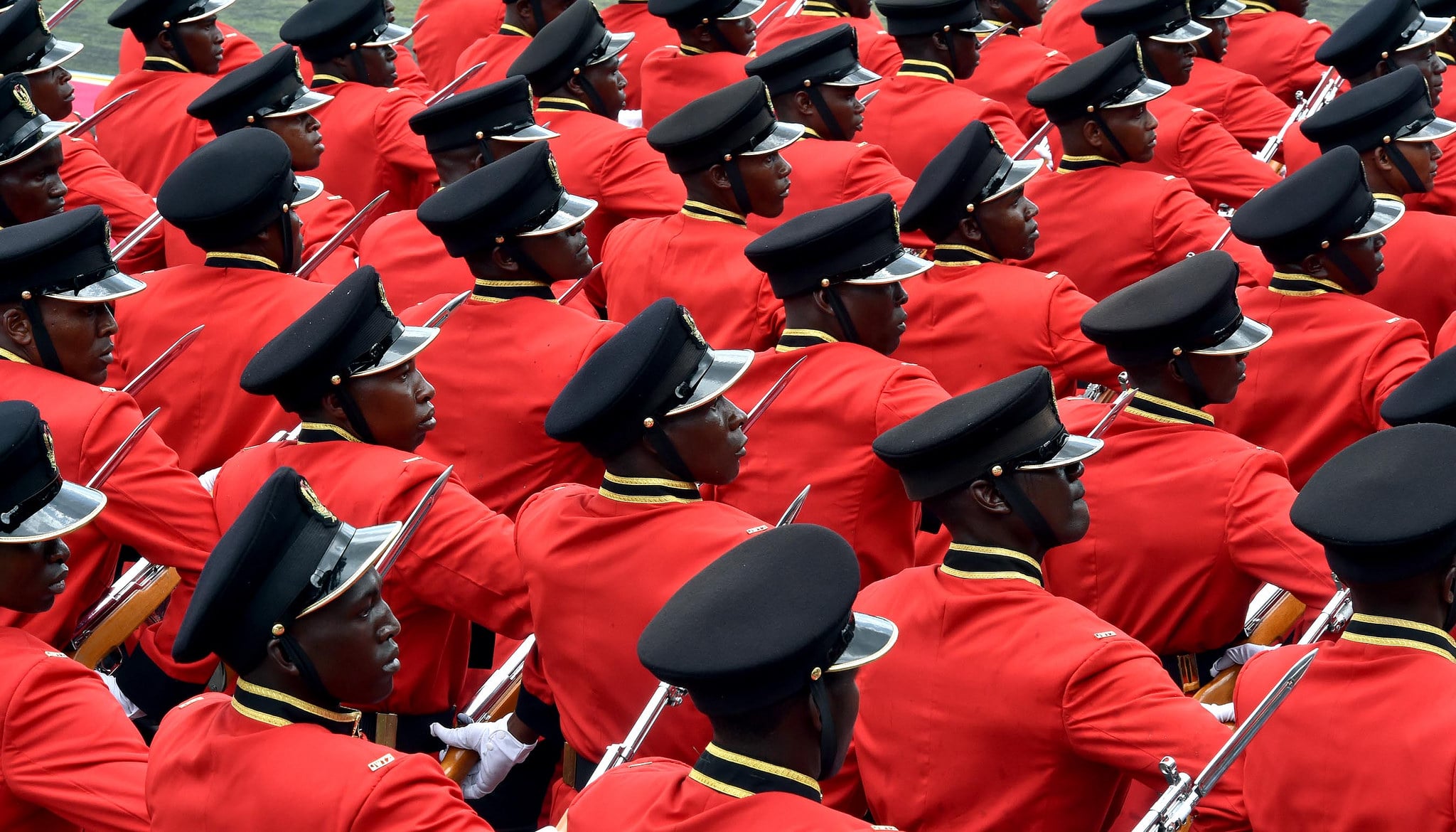What Would Julius Nyerere Do?
Recent and current leaders in Tanzania like to be compared to Mwalimu Nyerere. Take current president, John Magufuli. He has been working hard to claim Nyerere’s mantle.

Military parade at the inauguration of President John Magufuli in November 2015. Image Credit: GCIS
Seventeen years ago today, Mwalimu Julius Nyerere, Father of the Nation, passed away. For Tanzanians this amounts to a “where were you when…?” moment. I was in school that fateful Thursday when the bell unexpectedly rang and we learnt that Mwalimu (teacher in Swahili) had passed away in London, where he was being treated for leukemia. Domestically, Mwalimu played a key role in freeing the country from British colonialism. His leadership was also credited in uniting more than 125 tribes into a unified nation. When he finally stepped down in 1985 (he had been the only leader Tanzanians had known since independence) , the literacy rate was at 91% and the inequality gap was one of the lowest in Africa.
But his legacy went far beyond Tanzania. Continentally, Mwalimu made Dar-es-Salaam the capital of Southern Africa liberation movements. Freedom fighters from Mozambique, South Africa, Zimbabwe, Namibia, Botswana and Angola had offices and training camps in Tanzania, including Mozambique’s Frelimo and South Africa’s African National Congress. Globally, he made the University of Dar-es-Salaam the magnet for anti-colonial activists and thinkers. Che Guevara, Malcolm X, Mohammed Ali and Walter Rodney, passed through, stayed and strategized from Dar-es-Salaam.
Even in retirement and posthumously, Mwalimu remained our reference point for counsel, wisdom and direction. Consequently, past and current leaders in Tanzania like to be compared to him. Take current president, John Magufuli. He has been working hard to claim Nyerere’s mantle. Barely 100 days into his presidency, Magufuli became the focus of a hashtag on social media for his anti-graft and anti-waste measures. #WhatWouldMagufuliDo was trending across the continent. But Magufuli also displayed autocratic tendencies, spawning another hashtag: #WhatIsMagufuliDoing. His government became associated with shrinking the civic space, restrictions on media freedom, newspapers suspensions, social media arrests, and bans on live parliament broadcasts as well as citizens participation in political activities.
Some see parallels to aspects of Magufuli’s autocratic tendencies and Nyerere’s years in government. The difference is Mwalimu had incredible foresight and effectively made a U-turn in early 1990s. He foresaw the inevitable democratic changes that were happening across the continent (following the fall of the Soviet Union) and understood that if the government did not peacefully initiate the shift to a multiparty system, sooner or later the citizens would chaotically demand it.
The post-1990 Nyerere would probably say to the current government what he said to his own party that was unwilling to end its monopoly of political activities in 1991. Despite being the architect of one-party rule in Tanzania (1965-1990), Nyerere said: “the people of the majority view have to accept the rights of minority to express their opinions without intimidation. Indeed, must accommodate those views as far as possible.” Likewise, regarding those offering a false choice between democracy and development, Mwalimu would probably repeat what he said in 1973: “If real development is to take place, the people have to be involved.”
Finally, some wonder what Mwalimu would make of the intolerance of the current government to alternative viewpoints, and its penchant for making impromptu decisions and visits that lack legal basis and are devoid of concrete plans. In a farewell address to parliament in 1985, Nyerere said: “We never pretended to have any special wisdom about the means of developing our country. We made false starts and mistakes, but we had the courage and the wisdom to correct our mistakes.”
What would Mwalimu do if he was to return to his beloved country today? He would weep over the tragedy of missed opportunities; that we have failed to discern the signs of the times and the government has gone back, politically, to the pre-1990 era. In typical Nyerere fashion he would then berate us about the huge divide between the rich and the poor. He would chastise the current and previous governments for immortalizing him in buildings, airports and bridges, but not in his principles. He would also rebuke them for ingratiating themselves to neighbors with dubious human rights and democratic records. Finally, he would warn us to leave him alone and stop comparing him to anyone else, ever again. He wouldn’t linger any longer, because the pain would be too much to bear.


















